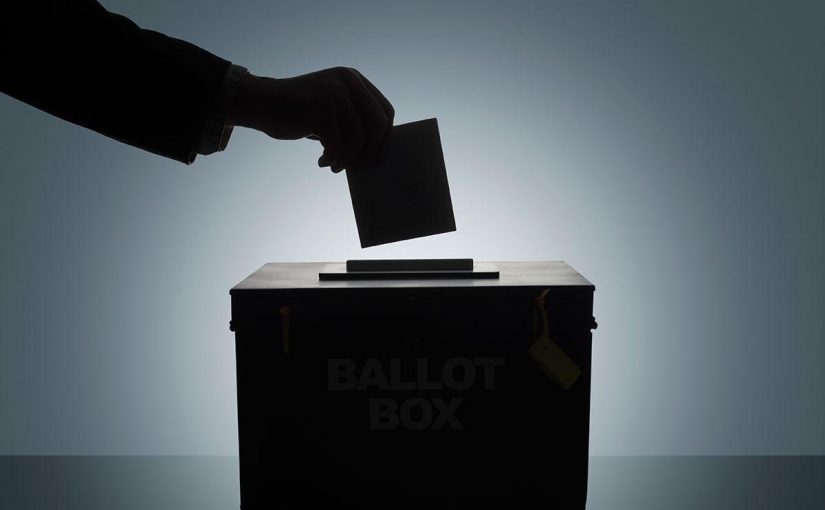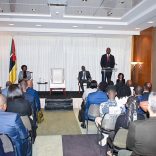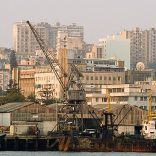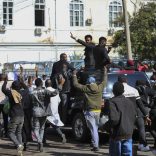Mozambique: Foreign Minister in Zimbabwe for Africa–Nordic Foreign Ministers’ Meeting
Victims of manipulation of the voters roll and people who sold their voters card can still vote – CIP Mozambique Elections 146

File photo: CIP
- Victims of manipulation of the voters roll and people who sold or gave away their voters card can still vote
Anyone with a voters card can vote, and anyone on the voters roll can vote, in municipal elections tomorrow, 11 October, Dom Carlos Simão Matsinhe, Presidente of the CNE, said in his call to vote this morning (10 Oct). This was confirmed in a special order to all provincial directorates of STAE by Lolo Correia, STAE Director General, yesterday (9 Oct).
It is a belated attempt to deal with major misconduct during and after the electoral registration:
During registration in Beira and elsewhere, registration staff intentionally badly misspelled names to make them hard to find.
In Morrumbala and elsewhere, voters names have been taken off the electoral roll.
And in many places Frelimo has been buying voters cards or local officials have been putting pressure on local people to hand over their cards.
Voters cards specify the polling station, and the ruling yesterday means that anyone with a valid voters card can go there and vote, even if the name cannot be found on the voters roll. Similarly, anyone who has lost, sold, or given away their voters card can still vote if they have an alternative identification.
It is unclear whether this instruction will be obeyed, however. We have also reported that Frelimo has ensured their members are polling station heads in many areas. During the registration there were instructions from local Frelimo leaders to register Frelimo members first, and they to ignore the instruction from national STAE not to do this. So this new instruction may not be complied with by the district STAEs.
In his exhortation, the Chairperson of the National Elections Commission (CNE), Bishop Carlos Matsinhe, stated: “Those who have lost their voter cards should go and vote tomorrow. It is enough that they go to the voting sites where they registered, bringing with them any kind of identification document that bears a photograph”.
- No credentials for civil society observers in Beira, Nampula and Nacala
The electoral bodies are hindering the process of accrediting of independent observers in Beira, Nampula and Nacala. The CNE says it has already accredited 20,000 observers across the country, of which there are 3,000 in the city of Nampula alone. However, the Mais Integridade civil soceity consortium submitted only 485 applications for accreditation as election observers and, by the end of Monday, fewer than 300 observers had been accredited..
In Beira, the applications submitted weeks ago have still not been approved. On Monday, Mais Integridade met with the electoral bodies in Beira and they promised to have the credentials in place by today, but civil society organisations are still waiting for credentials.
Last week, the electoral management bodies informed observers that there was a shortage of material for the production of credentials and that they could therefore no longer accredit observers. But the CIP Election Bulletin knows that the electoral bodies are currently accrediting organisations belonging to Frelimo.
The law establishes that the period for responding to a request to issue a credential is five days from the submission of the request, but in practice the electoral bodies exceed this period without explanation.
In 2019, around 40,000 observers from little-known electoral observation organisations were accredited. This year the situation seems to be repeating itself.
- Renamo neutralises out-of-towners going to vote in Milange
Renamo supporters are neutralising voters supposedly coming from outside the municipality of Milange, Zambézia, which sparked off disturbances, and physical assaults.
The police rounded up both alleged illegal voters and Renamo members involved in the operation against them. By the close of this edition of the Bulletin, about ten people had already been detained.
The detainees confirmed that they came from areas outs[de the municipality in order to vote tomorrow (11 October). They were caught inside the municipality and, when questioned, they stated categorically that they came to vote.
The head of the Renamo list, Indique Saquei, says that these people are very well known. One of them is the Chiringe community leader who, during the voter registration, was surprised registering in the municipality.
- Oil lamps guarantee lighting in 15 Beira polling stations
At least 15 polling stations on premises that are not connected to the electricity grid may resort to oil lamps to count the votes in Beira.
These are the stations set up at the Macúti and Unizambeze EPCs, in the Macúti neigbourhood, the 7 April EPC, in Chipangara, the Agostinho Neto EPC, no Chaimite, Ndunda 1 and 2 EPCs, in the neighbourhood of the same name, Monomutapa and Moçambique Industrial EPCs, in Manga, the Ngupa and Inspecção schools in the Cerâmica area, and the Tchonja, Nhassassa, Nhangoma, Nhakamba and Ndjalane schools, in the Nhangau administrative post.
The chair of the Sofala Provincial Elections Commission, (CPE) Simão Henrique, explained Monday (9 October) that, even in the polling stations that are connected to the electricity grid, the CPE has allocated oil lamps so that, in the event of any failing in the supply of electricity, it will be possible to begin counting the votes.
He guaranteed that all the technical and logistical conditions have been established so that the voting day runs without any snags.
He added that 34 shelters have been built to accommodate some polling stations.













Leave a Reply
Be the First to Comment!
You must be logged in to post a comment.
You must be logged in to post a comment.